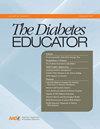中年女性的2型糖尿病和肌肉骨骼症状
IF 3.9
Q1 Health Professions
引用次数: 1
摘要
目的本研究的目的是描述来自美国4个主要种族/民族的中年妇女的2型糖尿病和肌肉骨骼症状之间的关系。方法:这是一项二级数据分析,使用来自2项大型调查研究的164名年龄在40至60岁之间的参与者的数据(62名患有2型糖尿病,102名没有2型糖尿病)。在最初的研究中,参与者完成了关于背景特征、健康状况、更年期状况和肌肉骨骼症状的多项问卷调查。中年妇女肌肉骨骼症状指数用于确定肌肉骨骼症状的数量和严重程度。数据分析采用独立t检验、Mann-Whitney U检验和多元回归分析。结果2型糖尿病患者的肌肉骨骼症状的平均数量明显高于非2型糖尿病患者,平均严重程度评分也明显高于非2型糖尿病患者。在亚组分析中,在每个绝经期和非西班牙裔白人女性中,2型糖尿病患者和非2型糖尿病患者的数量和总严重程度评分有显著差异。当背景特征、健康状况和绝经状态得到控制时,诊断为2型糖尿病与肌肉骨骼症状的数量和总严重程度评分呈正相关。结论研究结果支持2型糖尿病与中年女性肌肉骨骼症状的显著关联。建议进一步研究以确认在更大人群中的关系。本文章由计算机程序翻译,如有差异,请以英文原文为准。
Type 2 Diabetes and Musculoskeletal Symptoms Among Midlife Women
Purpose The purpose of this study was to describe the association between type 2 diabetes and musculoskeletal symptoms among midlife women from 4 major racial/ethnic groups in the United States. Methods This is a secondary data analysis using the data from 164 participants aged 40 to 60 years of 2 larger survey studies (62 with type 2 diabetes and 102 without type 2 diabetes). In the original studies, the participants completed multiple questionnaires on background characteristics, health status, menopausal status, and musculoskeletal symptoms. The Musculoskeletal Symptom Index for Midlife Women was used to determine the number and severity of musculoskeletal symptoms. For data analysis, independent t tests, Mann-Whitney U tests, and multiple regression analyses were used. Results The mean number of musculoskeletal symptoms was significantly higher in women with vs without type 2 diabetes as was the mean severity score. In subgroup analyses, among each menopausal stage and non-Hispanic white women, there were significant differences in the numbers and total severity scores between those with type 2 diabetes and without type 2 diabetes. When background characteristics, health status, and menopausal status were controlled, having diagnosis of type 2 diabetes was positively associated with the numbers and total severity scores of musculoskeletal symptoms. Conclusion Study findings supported significant associations of type 2 diabetes with musculoskeletal symptoms among midlife women. Further studies are recommended to confirm relationships in larger populations.
求助全文
通过发布文献求助,成功后即可免费获取论文全文。
去求助
来源期刊

Diabetes Educator
医学-内分泌学与代谢
CiteScore
4.00
自引率
0.00%
发文量
0
审稿时长
6-12 weeks
期刊介绍:
The Diabetes Educator (TDE) is the official journal of the American Association of Diabetes Educators (AADE). It is a peer-reviewed journal intended to serve as a reference source for the science and art of diabetes management.
TDE publishes original articles that relate to aspects of patient care and education, clinical practice and/or research, and the multidisciplinary profession of diabetes education as represented by nurses, dietitians, physicians, pharmacists, mental health professionals, podiatrists, and exercise physiologists.
 求助内容:
求助内容: 应助结果提醒方式:
应助结果提醒方式:


